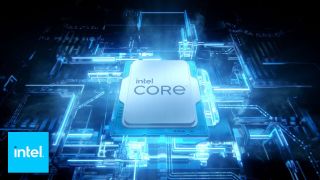Game publisher claims 100% crash rate with Intel CPUs – Alderon Games says company sells defective 13th and 14th gen chips
No amount of BIOS or firmware updates fix the problem.

Frustration is mounting over Intel's inability to resolve its Raptor Lake instability problems. Game development studio Alderon Games revealed on its website that the company has had nonstop problems with Intel's 13th and 14th-generation processors in its servers, development systems, and customers' gaming PCs. The issues have become so prevalent that Alderon Games publicly stated that Intel sells defective 13th and 14th-generation CPUs.
Alderon Games revealed that it had observed a nearly 100% failure rate of Raptor Lake processors in its own testing. Telemetry from end customers reports thousands of Raptor Lake CPUs crashing in customers' gaming PCs. Alderon Game's own development systems utilizing Raptor Lake CPUs also suffer from frequent instability, leading to SSD and memory corruption. On top of this, the studio's dedicated game servers leveraging Raptor Lake parts experience "constant crashes" to the point where they are taking entire servers down.
The studio's benchmarking tools also show failures with Raptor Lake parts, specifically decompression and memory tests unrelated to its Path of Titans game, which the company is developing.
The worst part is that Alderon Gamers has observed CPU deterioration over time, specifically over three to four months. Initially, the chips will work fine but eventually start failing. Microcode, BIOS, and firmware updates have failed to resolve these stability problems for the game studio.
To compensate for these stability issues, Alderon Games is switching all of its game servers to AMD-based systems, which it says "experience 100 times fewer crashes compared to Intel CPUs that were found to be defective." It is also adding in-game notifications to its survival game Path of Titans that alert gamers running Raptor Lake CPUs in their gaming PCs.
Our previous report, sourced from Level1Tech, found a 50% failure rate among Raptor Lake Core i9-powered servers. But Alderon Games reports a near 100% failure rate among its Raptor Lake-powered machines.
It is understandable that Alderon Games has concluded that Intel's 13th and 14th Gen chips are downright defective. That may be the case, but Intel has still not determined the causation of these stability problems. Regardless, Raptor Lake instability is now occurring at an alarming rate, and Intel's latest microcode updates boast stricter power limit targets, but bug fixes are not fixing the issue.
Stay On the Cutting Edge: Get the Tom's Hardware Newsletter
Get Tom's Hardware's best news and in-depth reviews, straight to your inbox.

Aaron Klotz is a contributing writer for Tom’s Hardware, covering news related to computer hardware such as CPUs, and graphics cards.
-
bit_user I really wish they could try some servers powered by Emerald Rapids Xeons and tell us if those are experiencing any similar sorts of failures.Reply
I know some of Intel's bigger server customers monitor their fleet via telemetry. So, it should come to light, sooner or later, if they are afflicted by these issues. -
ThomasKinsley If I recall correctly, these are i9s only, right? The 14700K and non-K series were unaffected?Reply -
bit_user Reply
The linked announcement doesn't specifically say.ThomasKinsley said:If I recall correctly, these are i9s only, right? The 14700K and non-K series were unaffected? -
rluker5 Is there a way I can get a beta of this game? Is it on Steam as some early access or something? I know it is a dinosaur RPG and I'm not into those at all,but I bet it would run fine with a similar treatment as The First Descendant does. That one took 10mv less undervolt than SOTTR did with my usual, often repeated reduced vdroop settings. But TFD also runs fine at completely Asus "stock" settings on my average setup. I can make it unstable though, all it takes is to lower the volts below stability.Reply -
bit_user Reply
That's an i5. All of the articles I've seen about this have mentioned Gen 13 and Gen 14, i7 and i9 K-series models. Also, the Gen 14 seem more affected than Gen 13.WrongRookie said:Have been using a 13600k for a while now. No issues regarding the cpu in my case
So, you might be safe, or maybe it'll just take a lot longer for the i5-13600K to start experiencing these problems. -
Notton I have a relatively new system with i7-13700k that I only use when I play games.Reply
It is working fine so far, but I'm not thrilled at the idea of having to replace it and the mobo, should it fail prematurely. -
hotaru251 I already assume Intel knows its a defect (they are large enoguh and have smart ppl theres no chance they havent found issue by now) and that is why they haven't publicly stated the issue now after months of silence....if they admit tis defective product they would be required to refund anyone w/ issue and I assume they dont want to deal with it so they will drag it out as long as possible and try to come up with a scapegoat reason.Reply -
Neilbob On the plus side, Nvidia are probably thrilled that this is redirecting attention from things like melting power connectors :)Reply -
jeremyj_83 Reply
From listening to the Level1Tech interview on Gamer's Nexus is that the servers would be fine at first and then after 3-4 months have failures. Figure if these are running 24/7 then 3-4 months for them is 9 months or longer if you game 8hrs a day every day. Less usage means it will take longer to happen in theory.Notton said:I have a relatively new system with i7-13700k that I only use when I play games.
It is working fine so far, but I'm not thrilled at the idea of having to replace it and the mobo, should it fail prematurely.
Most Popular




